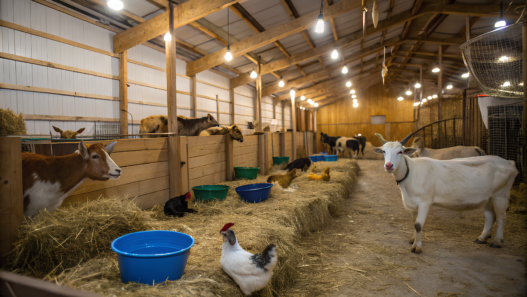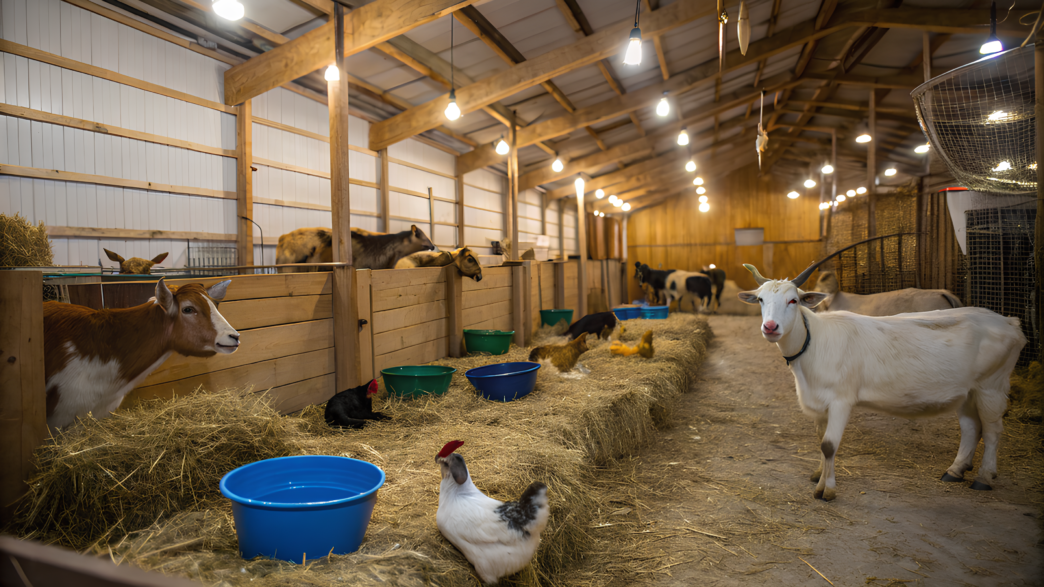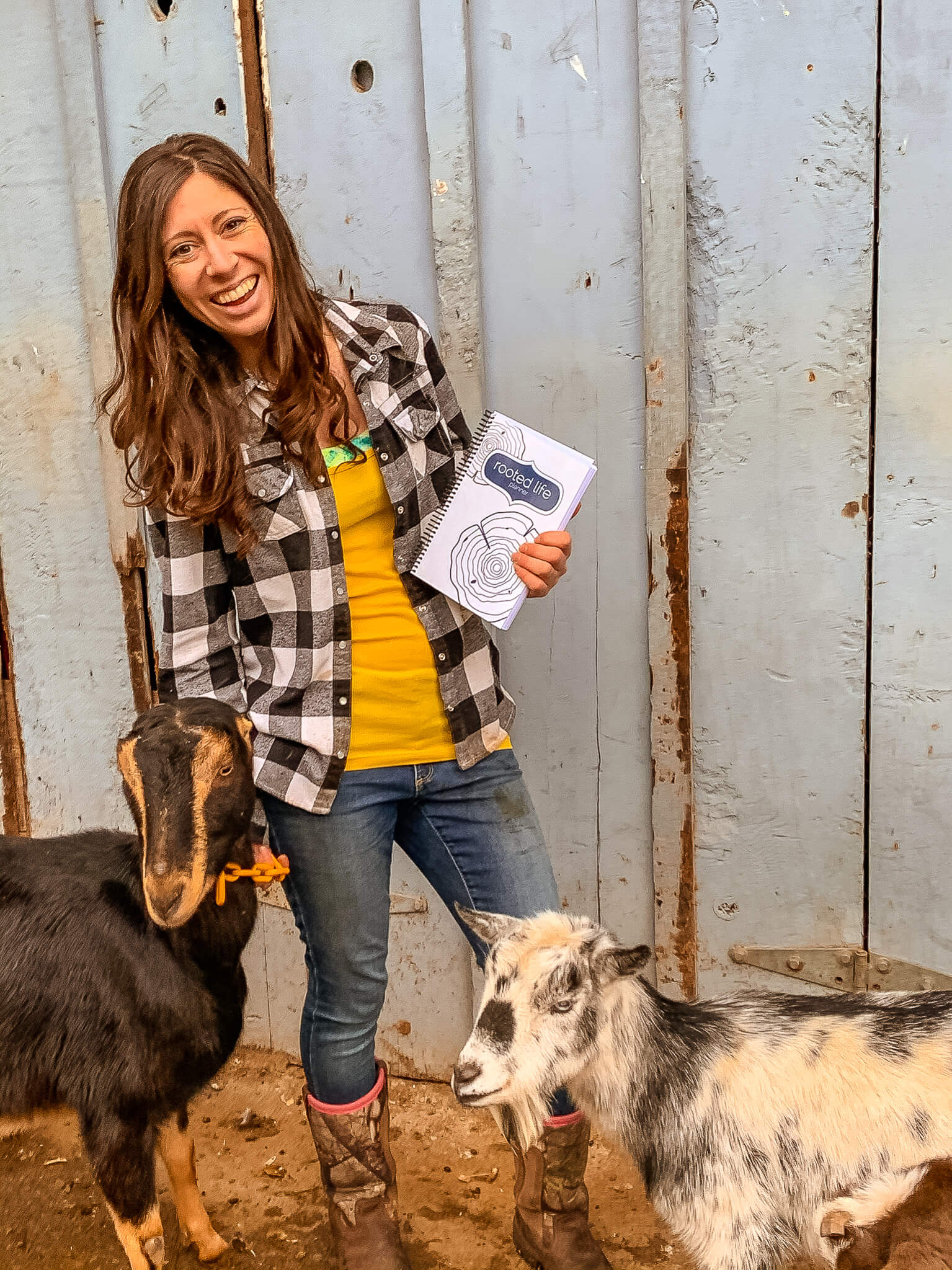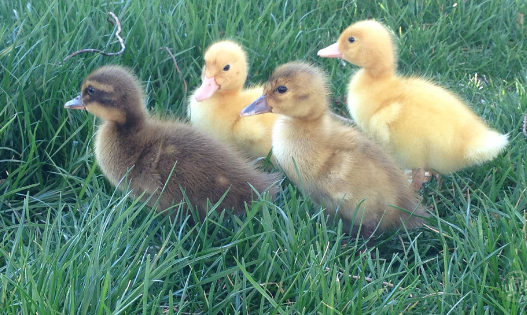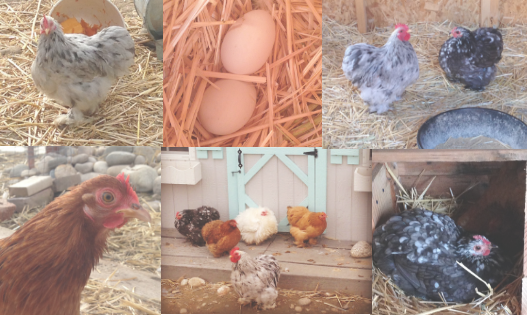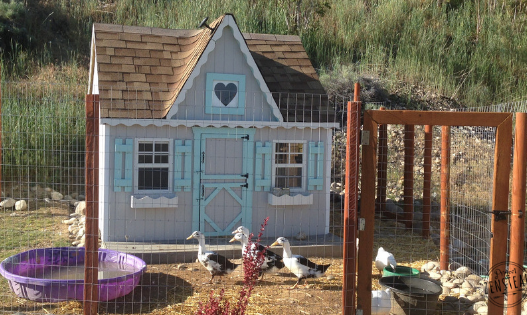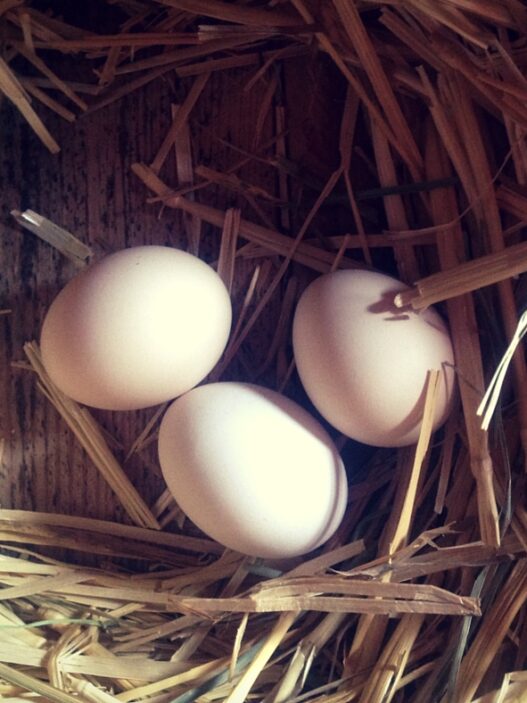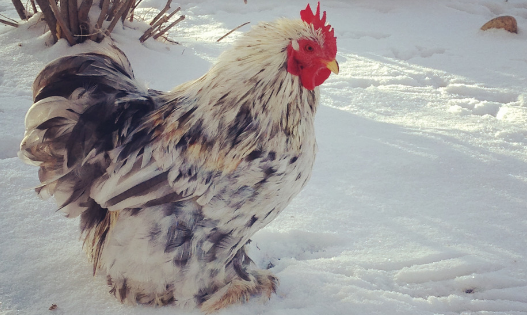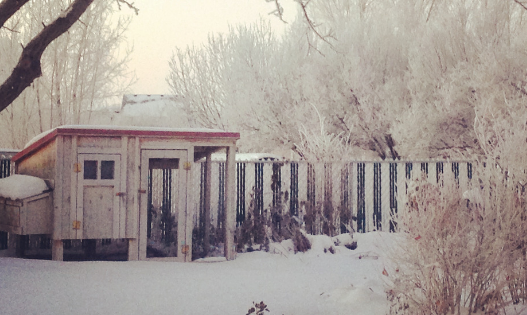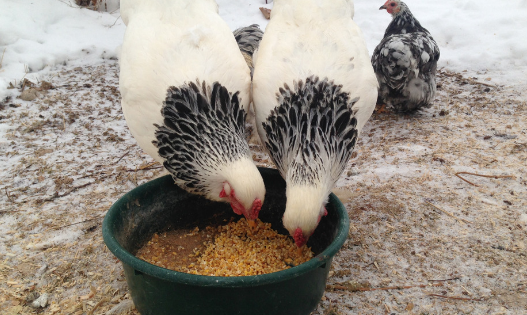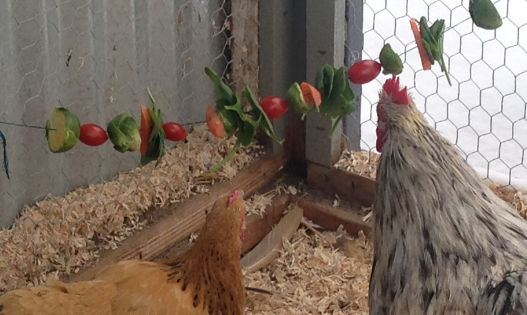Winter is always a challenge not only for farmers but also for animals. Farm animals in winter can face the risks of hypothermia, frostbite, which also entails a decrease in productivity. But all this is surmountable, as the right approach and care will help animals to stay healthy and happy even on the coldest days.
First of all, you need to take care of a reliable shelter. Check your barn, it should be draft-free, because wind and cold air significantly reduce the temperature inside the room.
Thoroughly inspect the walls and doors for gaps, seal them with sealant or insulation. It is also a good idea to use thick curtains or plastic shades over frequently opened doors to reduce heat loss. Research confirms that wind protection directly affects comfort and body heat loss of farm animals in winter (source).
Another important aspect of animal care is bedding. It should be dry and warm, because dampness increases animal cooling. Hay or wood shavings are good for bedding. Remember to keep an eye on it and change it as soon as it gets wet. This is important to maintain insulation.
Nutrition farm animals in winter
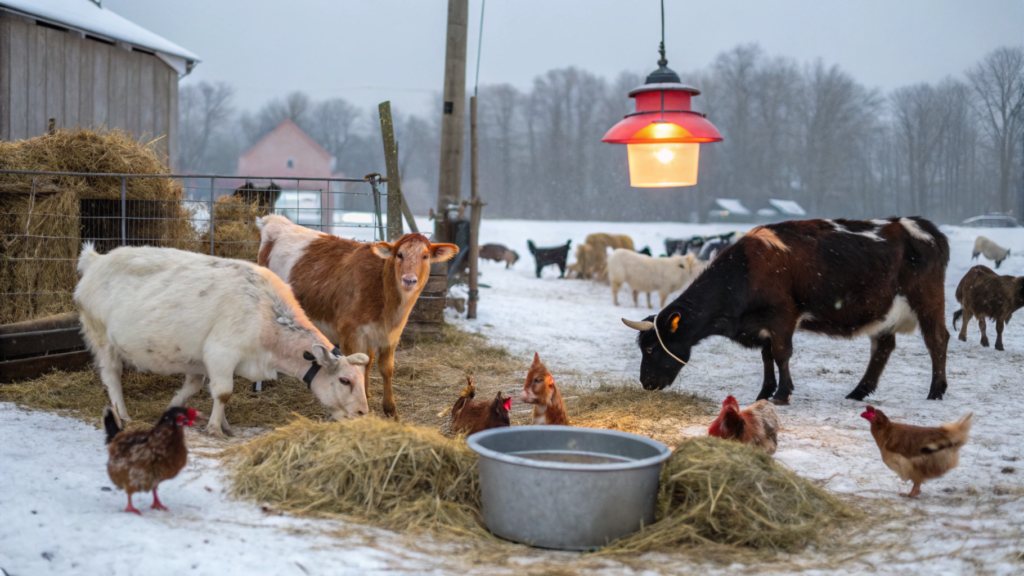
Nutrition plays an important role in keeping animals warm in winter. It is during the cold season that animals need more calories for energy production. For example, ruminants such as cows and goats should increase the amount of good quality hay, as digesting it helps generate heat.
And if you also have chickens, add high protein feed to their diet This will have a positive effect on their activity and egg production.
It is also important to provide access to water. But drinking cold water lowers body temperature, so make sure the water stays warm, as frozen drinkers can be a serious problem. To avoid this, use heated buckets or special anti-freeze devices.
If it gets too cold and the air temperature drops, additional heating becomes vital and helps to solve the question of how to keep farm animals warm in winter. For particularly vulnerable animals such as young animals or chickens, infrared lamps can be used. Only beforehand you need to make sure that all devices are installed safely, thus eliminating the risk of fire.
Miniature horses or goats, on the other hand, may need warm blankets. Even large animals like cows or horses that grow thick winter coats may also need additional protection during severe cold weather.
Daily monitoring of the health
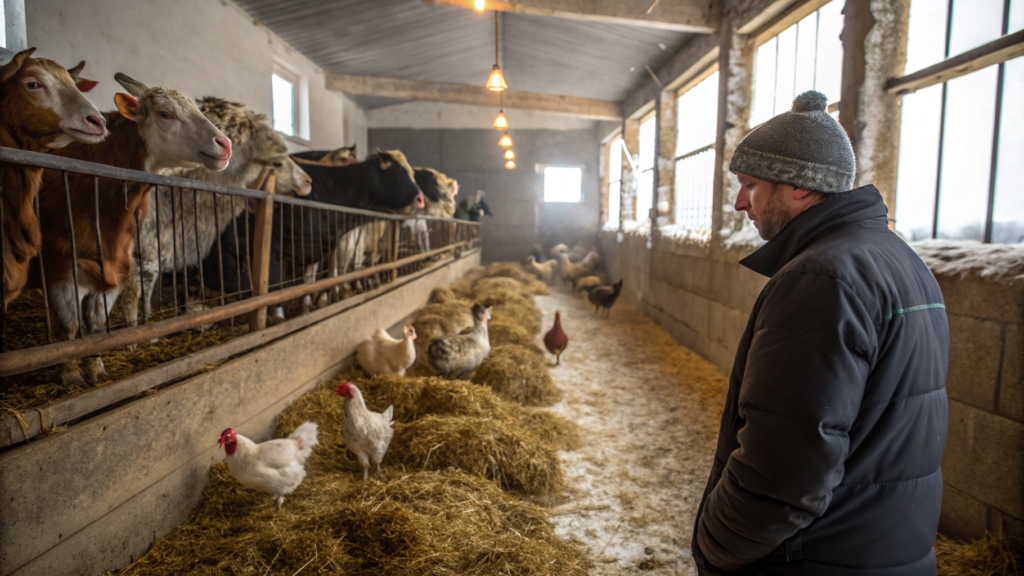
Daily monitoring of the health of farm animals helps to prevent the onset of diseases in time. Observe your pets closely. Shivering, lethargy or decreased appetite are clear signs of hypothermia.
Chickens may have reduced egg production and livestock may be less active if there is a lack of heat. Keep an eye on your animals, it’s the little things in their behavior that can make the difference.
Sometimes the simplest of actions can make the difference on how to keep farm animals warm in winter. For example, I place hay bales along the walls. They create a strong barrier to the wind. Or you can open south-facing windows so that natural sunlight can help warm the room.
And sometimes even simply grouping animals together in one corner to exchange heat can help. All of these measures combined can have a significant impact on the condition of farm animals in winter.
Products
To make winter preparations easier, as always I recommend some products worth purchasing.
- K&H Pet Products Heated Bucket will help prevent water from freezing.
- PETNF Chicken Coop Heater is great for the birds.
- Heavy-Duty Livestock Blanket will be indispensable for small animals.
Winter is the time when you can take full care of your pets. Make sure that your farm animals in winter feel comfortable, that you have done everything in your power to make them feel safe. Then no cold weather will be too much for them!
What are some of your pet grooming life’s freezing cold weather care life’s best practices?
Share your tips in the comments. I will be glad to share my experience with you.
